NAVYPEDIA
 Support the project with paypal
Support the project with paypal
Photo

Furious 1918
Ships
| Name | No | Yard No | Builder | Laid down | Launched | Comp | Fate |
|---|---|---|---|---|---|---|---|
| Furious | 65, 40, 47 | 896 | Armstrong, Elswick | 8.6.1915 | 15.8.1916 | 7/1917 | aircraft carrier 3.1918, test ship 5.1945, sold 3.1948 |
100 - 1000 t displacement/ BRT tonnage vessels
Technical data
| Data variant | --- | 1925 modernization |
|---|---|---|
| Displacement standard, t | --- | 22450 |
| Displacement normal, t | 19513 |
|
| Displacement full, t | 22890 |
27165 |
| Length, m | 239.7 |
224.0 pp 239.7 oa |
| Breadth, m | 26.8 |
27.5 over bulges, 27.9 over flight deck |
| Draught, m | 6.40 mean |
8.56 deep load |
| No of shafts | 4 |
4 |
| Machinery | 4 sets Brown-Curtis geared steam turbines, 18 Yarrow small-tube boilers |
4 sets Brown-Curtis geared steam turbines, 18 Yarrow small-tube boilers |
| Power, h. p. | 90000 |
90000 |
| Max speed, kts | 31.5 |
30 |
| Fuel, t | 3393 oil |
3830 oil |
| Endurance, nm(kts) | 6000(20) | 6000(20) |
| Armour, mm | belt: 76 - 51, bulkheads: 76 - 51, barbette: 178 - 102, turret: 229 (face, sides, rear) - 127 (roof), CT: 254, main deck: 76 - 19 with 25-mm slopes |
belt: 76 - 51, bulkheads: 76 - 51, decks summary: 76 - 19 |
| Armament | 1 x 1 - 457/40 BL Mk I, 11 x 1 - 140/50 BL Mk I, 6 x 1 - 76/45 20cwt QF Mk I, 2 - 533 TT (beam, 10), 8 aircraft (Pup fighters, 11.2-strutter recon planes) |
10 x 1 - 140/50 BL Mk I, 2 x 1 - 102/45 QF Mk V, 4 x 1 - 47/40 3pdr Hotchkiss Mk I, 4 x 1 - 40/39 2pdr QF Mk II, 36 aircraft (Flycatcher fighters, Dart torpedo bombers, Bison, Blackburn, Fairey III recon planes) |
| Complement | 737 |
1218 |
Air group
| Year | Fighters | bombers | torpedo-bombers | reconnaissance and other |
|---|---|---|---|---|
| 1917 | 5 - 6 Pup | --- | --- | 3 - 4 Short 184 seaplanes |
| 3.1918 | 6 Camel | 14 11.2-strutter | --- | --- |
| 1919 | --- | 9 11.2-strutter | 3 Cuckoo | --- |
| 1919 | 12 Camel | 2 11.2-strutter | --- | 4 Short 184 seaplanes |
| 1925 | 6 Flycatcher | --- | 12 Dart | 12 Fairey III, 6 Bison |
| 1935 | 3 Osprey, 9 Nimrod | --- | 12 Baffin | 12 Fairey III |
| 8.1939 | --- | --- | 18 Swordfish | --- |
| 9.1939 | --- | 9 Skua | 18 Swordfish | --- |
| 5.1940 | --- | --- | 24 Swordfish | --- |
| 6.1940 | 9 Fulmar | 6 Skua | 9 Swordfish | --- |
| 7.1940 | --- | 9 Skua | 18 Swordfish | --- |
| 4.1941 | --- | 12 Skua | --- | --- |
| 6.1941 | 9 Fulmar, 4 Sea Hurricane | --- | 18 Swordfish, 9 Albacore | --- |
| 11.1942 | 27 Seafire, 1 Fulmar | --- | 8 Albacore | --- |
| 2.1943 | 9 Seafire, 6 Sea Hurricane | --- | 9 Swordfish, 9 Albacore, 12 Barracuda | --- |
| 4.1944 | 14 Seafire | --- | 9 Barracuda | --- |
| 7.1944 | 3 Seafire, 20 Hellcat | --- | 3 Swordfish | --- |
| 8.1944 | 24 Seafire | --- | 9 Barracuda | --- |
Standard scale images

Furious 1917

Furious 1939

Furious 1918

Furious 1925
Graphics
Aircraft facilities
(fd - 1,512 m², ha - 419 m² / 1,800 m³) as completed: fwd flying-off deck 84x18m, under-deck hangar (27x15.5x4.3m) with elevator (9x5m) and 2 derricks for seaplanes handling. Wheel planes had to land on land bases.
Project history
This ship made huge impact on class evolution. She was ordered as a light battlecruiser, the third ship of Courageous class with two single 457mm turrets, but already during building have converted into "semi-aircraft-carrier", having arranged a hangar in a fore end and a flying-off deck aft. Soon after commission she was returned on shipyard again and fitted with a second, landing deck in an aft part.
Because of the vortexes of air arising at a flow of a superstructure and funnel arranged in a centreline, boarding of aircrafts on Furious stern deck has appeared is interfaced to the big risk. Therefore the ship has passed the next conversion in 1922-1925. She lost all superstructures, a funnel and a mast. Fore and aft hangars have pooled into one over which have raised upper. Planes could start now at once from two levels: with short fore flying-off deck and from upper deck holding ¾ lengths of the ship. Aircrafts lifted on an upper deck by two 5.5t lifts. Catapults and arrestment gears was not. Underwater protection was calculated for an underwater explosion of of 200kgs of TNT. Furious has passed large refit in November 1938 — May, 1939. There was a small island superstructure on a flight deck from starboard. A short lower flying-off deck have ceased to use directly. Capacity of one of lifts was increased to 6.4t. Artillery was completely changed.
Protection
The main belt was constructed from 51mm armour from HT (high tensile) steel on 25mm hull plating between the 'Y' barbette and former 'A' barbette. This belt was 8.4m deep, its lower edge was in 1.4m below the waterline, and upper edge was connected with the upper deck. Fwd from former 'A' barbette summary thickness of main belt was 51mm (it had some smaller deep), it was closed by 51mm transverse bulkhead, there was additional 76mm bulkhead abreast former 'A' barbette. Aft from the aft engine room also there was a 51mm belt, closed by 51mm bulkhead abreast 'Y' barbette, aft bulkhead of aft engine room (in point of connection of 76mm and 51mm belts) had 76mm thickness.
Turret had 229mm face, sides and rear and 127mm roof. Barbette had 178-152mm thickness above the upper deck and 76mm below the main deck. CT had 254mm sides, 76mm floor and 51mm roof, communication tube had 76mm protection. Main director had 152mm vertical and 76mm horizontal protection.
Forecastle deck between 'Y' barbette and former 'A' barbette had 25-19mm protection, but in area of superstructure was protected only near the sides. Upper deck between fwd 51mm transverse bulkhead and 'Y' barbette had 25mm armour. Main deck was 44mm at flat and 51mm at slopes. Lower deck was 25mm between former 'A' barbette and stem and between 'Y' barbette and stern, its thickness was increased to 76mm over steering gear compartment.
Additional 19mm longitudinal amidships bulkhead protected funnel uptake, this uptake and ventilator pipes had 38-25mm protection above forecastle deck. There was internal underwater protection with 38-25mm longitudinal bulkhead between former "A" and "Y" barbettes, but this bulkhead was placed between center line and outer shafts turbine sets and can not successfully protect the ship machinery, these bulkheads were closed by 25mm transverse bulkheads. Maximal deep of underwater protection was 3.7m.
Modernizations
(Armstrong, 11.1917 - 3.1918): ship received landing deck (86.6 x 21.3 m) with hangar (35.3x10.1x4.3m) (fd - 3,357 m², ha - 776 m² / 3,333 m³). Lifts were fitted on both hangars; - 1 x 1 - 457/40, 1 x 1 - 140/50; + 4 x 3 - 533 TT, can carry 16 aircraft (up to 26 since 10.1918)
(fd - 5,819 m², ha - 4,957 m² / 22,801 m³). There were two flight decks: fwd flying-off deck (49x26.8m), connected with upper hangar, and upper flight deck (175.5 (usable length 161.5)x27.9m). Hangars dimensions: lower - 167.6x15.2x4.6m, upper - 158.5x15.2x4.6m. There are two lifts on upper deck: fwd (14x14.3m, 5.7t) and aft (14x14.3m, 6.4t). There was no island. Petrol stowage was 93.6t. Original bulges had been increased in height. AA armament was changed.
1931 - 1932: - 4 x 1 - 40/39; + 1 x 1 - 102/45 QF Mk V, 2 x 8 - 40/39 2pdr QF Mk VIII
(11/1938-5/1939): New island superstructure was fitted. - 10 x 1 - 140/50, 3 x 1 - 102/45, 4 x 1 - 47/40; + 6 x 2 - 102/45 QF Mk XVI, 1 x 8 - 40/39 2pdr QF Mk VIII, 2 x 4 - 12.7/62
4.1941: + 1 x 8 - 40/39 2pdr QF Mk VIII
1941-1942: + 4x type 282, 2x type 285, type 290 radars
1942: bulges were deepened; full displacement was 28495t; - 2 x 4 - 12.7/62; + 15 x 1 - 20/70 Oerlikon Mk II/IV
1943-1944: + 7 x 1 - 20/70 Oerlikon Mk II/IV
Naval service
Seven Camel fighters started from a deck of Furious 19.7.1918 and made the first successful attack of German Zeppelins base. Furious was laid up before WWII. She was actively used in days of war (including Malta convoys and strikes on German battleship Tirpitz), that has affected her technical condition. In September, 1944 she was laid up again and later converted to test ship for tests of underwater protection systems.
Many thanks to Wolfgang Stöhr for additional information on this page.
 HOME
HOME FIGHTING SHIPS OF THE WORLD
FIGHTING SHIPS OF THE WORLD UNITED KINGDOM
UNITED KINGDOM FURIOUS light battlecruiser - aircraft carrier (1, 1917)
FURIOUS light battlecruiser - aircraft carrier (1, 1917)


